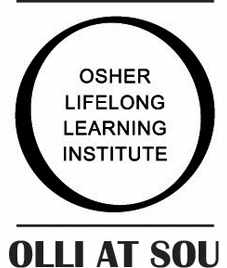Shakespeare Oxford Fellowship conference organizer Earl Showerman, MD, reports that Osher Lifelong Learning Institute (OLLI) will sponsor a community lecture titled, “British Scholars Address the Shakespeare Authorship Challenge” from 1-3 p.m. September 23, 2015 at the First Presbyterian Church of Ashland, Oregon. The event is free, no tickets are necessary.
[pullquote]Showerman said the topic of discussion at the September 23 OLLI scholars forum will be, “How credible is the evidence that Will Shakspere of Stratford-on-Avon wrote the works attributed to ‘Shake-speare’?”[/pullquote]
The British scholars are Ros Barber, PhD; Kevin Gilvary, PhD; Julia Cleave, MA (Oxon.); Alexander Waugh, and Margrethe Jolly, PhD — who will be in Ashland for the SOF annual conference September 24-27, 2015.
Those who attend the forum on September 23 will receive personal invitations to an invitation-only screening of Cheryl Eagan-Donovan’s Shakespeare-authorship documentary, Nothing Is Truer than Truth, to be viewed on the morning of Sept. 24, 2015 at the SOF Ashland conference.
Showerman is a published researcher on the authorship question, specializing in Greek references in the plays. He has taught the Shakespeare authorship question in OLLI classes affiliated with the Southern Oregon University Division of Continuing Education in Ashland for five years.
Showerman said the topic of discussion at the September 23 OLLI scholars forum will be, “How credible is the evidence that Will Shakspere of Stratford-on-Avon wrote the works attributed to ‘Shake-speare’?”
Earl Showerman provided the following information about the distinguished speakers:
- Ros Barber, PhD, is an English Lecturer at Goldsmiths, University of London, and author of the award-winning verse novel, The Marlowe Papers (2012) and Shakespeare: The Evidence (2013). She is also editor of 30-Second Shakespeare (2015). Her most recent publications included two articles in the current Notes & Queries. She is Director of Research and Webmaster of the Shakespearean Authorship Trust (London).
- Kevin Gilvary, PhD, obtained MA’s in Classics and Applied Linguistics from the University of Southampton, and was recently awarded his doctorate at Brunel University, London, England with a thesis on “Shakespearean Biografiction,” detailing how biographers rely on context, conjecture and inference to construct a life of the Bard. Kevin is the principal contributor and editor of Dating Shakespeare’s Plays (2010), for which he was named Oxfordian of the Year in 2011. He is also the current Chair of the De Vere Society.
- Julia Cleave, MA (Oxon.), is a Trustee of the Shakespearean Authorship Trust and a member of the academic board of the Temenos Academy. She taught Shakespeare in the context of training courses for foreign teachers and lecturers sponsored by the British Council. Since 1998 she has worked as an independent scholar, tracing the presence of Hermetic traditions in Renaissance and seventeenth century art and literature.
- Alexander Waugh is the author of Classical Music (1995), Opera (1996), Time (1999), and God (2002), as well as a family biography, Fathers and Sons (2004), and the House of Wittgenstein (2008). He is General Editor of the scholarly 42-Volume Complete Works of Evelyn Waugh for Oxford University Press, Senior Visiting Fellow at the University of Leicester, and co-editor of Shakespeare Beyond Doubt? Exposing an Industry in Denial (2013). He is Honorary President of the Shakespeare Authorship Coalition.
- Margrethe Jolly, PhD, is a lecturer in English literature and language, who received her PhD from Brunel University in 2013. Her book, The First Two Quartos of Hamlet: A New View of the Origins and Relationship of the Texts (2014), argues that a close examination of Hamlet supports the earliest hypothesis that Q1 Hamlet was written first. For Hamlet this comparison indicates a playwright who pursued a deliberate and extensive process of revision, working from the source to Q1, and then to Q2. It suggests that Q1 may be an example of what some would see as the missing ‘juvenilia,’ and that the date for Hamlet needs reviewing.



